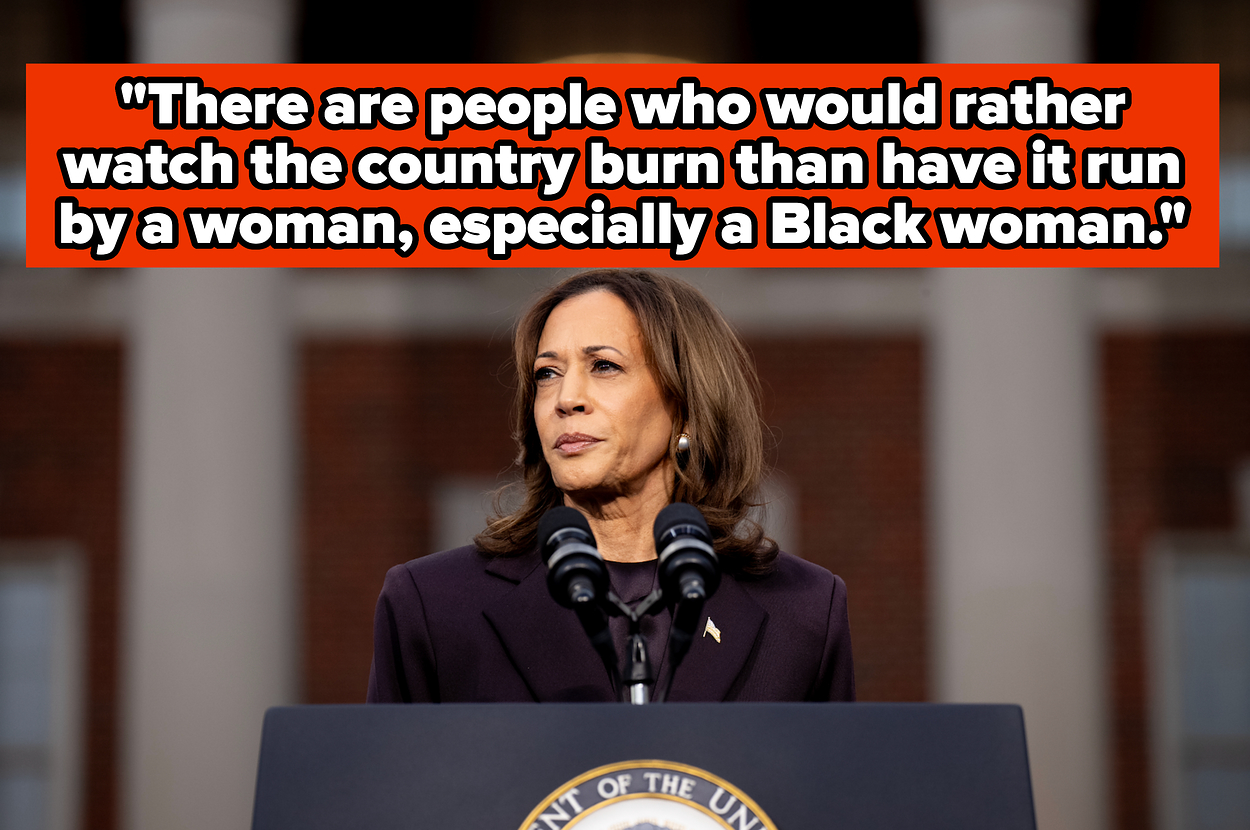Celebritiy
Black Americans Express Concern Over 2024 Election Priorities Regarding Black Women Candidates

One week post-election, the reactions from Black Americans are raw and poignant following Donald Trump’s unexpected victory over Kamala Harris. The sentiment among many is one of hurt, anger, and disillusionment. Despite significant support for Harris, Black voters find themselves at a crossroads, grappling with the implications of the election result.
Maddi8889 expresses a profound sense of fatigue and disillusionment. She points out that rather than participating in protests or political activism, she’s taking a break to focus on self-care. Her message to fellow Black Americans is one of solidarity in rest, signifying a retreat from a system that feels overwhelmingly hostile.
Another anonymous voice reflects on the systemic racism that has become an unavoidable part of the American landscape. They note that despite efforts from Democrats to improve conditions, the persistent narrative around crime and a struggling economy has been weaponized by Trump to galvanize his base.
Depression and numbness are recurring themes among the voices featured. One individual expresses disappointment over the lack of real allyship among other communities, feeling exploited for political gain while failing to reciprocate voting support. Others lament the degradation directed at Black women, referencing Trump’s disparaging comments about Harris and the impact this has on societal perceptions.
Frustration also emerges from those who feel betrayed by fellow Americans of color who voted for Trump. One commenter flatly states that it feels like Black Americans must work twice as hard for recognition and respect, while a white man with a troubled history can succeed by merely existing in the political arena.
The fears surrounding the future are palpable as individuals foresee a continued erosion of rights for minorities if Trump remains in power. This includes apprehensions about deportations that could disproportionately affect Black immigrants and a growing sense of insecurity within marginalized communities.
Expressions of dismay abound, particularly regarding the perception that a Black woman like Kamala Harris can be eclipsed by a candidate with a checkered past and a documented history of racism. Many find this especially galling, given the societal expectations placed on Black women to be “perfect” in their presentation and conduct.
As these Black Americans continue to process the implications of the election, several suggest a pivot towards self-determination and community-focused initiatives rather than merely responding to external political machinations. The call for Black Americans to devise their own plans resonates deeply amid a landscape filled with uncertainty and disappointment.
In closing, one resounding sentiment encapsulates the struggle faced by many: the deeper societal issues that have been brushed aside cannot be ignored anymore. This is a pivotal moment, demanding introspection about race, identity, and the future of America as it confronts its own historical wounds.
